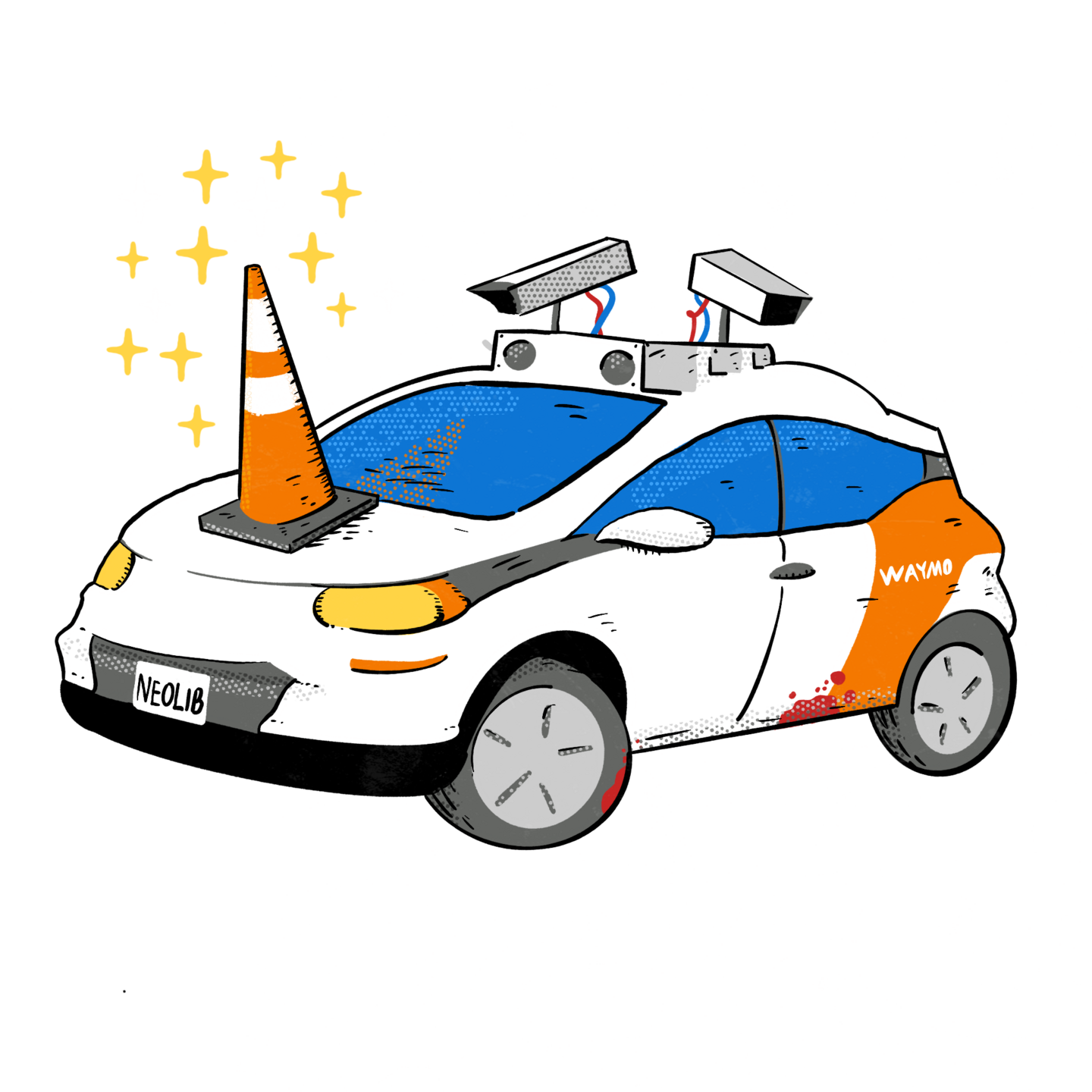
404 Media – ‘Student Should Have a Healthy-Looking BMI’: How Universities Bend Over Backwards to Accommodate Food Delivery Robots
See full original article by Jason Koehler at 404 Media.
Editors note: The issues with AVs goes beyond transporting people in cars. It also has invaded food delivery, especially on college campuses. Lots more information like this at 404media.co .
A food delivery robot company instructed a public university to promote its service on campus with photographs and video featuring only students who “have a healthy-looking BMI,” [body mass index] according to emails and documents I obtained via a public records request. The emails also discuss how ordering delivery via robot should become a “habit” for a “captured” customer base of students on campus.
These highly specific instructions show how universities around the country are going to extreme lengths to create a welcoming environment on campus for food delivery robots that sometimes have trouble crossing the street and need traffic infrastructure redesigned for them in order to navigate campus, a relatively absurd cache of public records obtained by 404 Media reveals.
Starship delivery robots are currently semiautonomously performing the critical public service of driving orange chicken from Panda Expresses, Wendy’s, and other restaurants on campus to dorm rooms at 32universities across around America: “Over 5 million autonomous deliveries now completed! Thousands of Starship delivery robots are operating globally, every day,” the company’s website notes.
Documents I obtained from the University of North Carolina at Charlotte show that universities are instructed by Starship to stage and take glamorous publicity photos of the robots that show “as many robots as possible in front of a university landmark,” and for the photos should stage a fake autonomous delivery that is made to look autonomous but is not. University police, meanwhile, are instructed to immediately notify the company if the robot is involved in some sort of crime or safety incident, and the company requests that it “lead” the investigation of the incident.
University police and employees at the University of North Carolina at Charlotte’s IT department saw the robots as potentially roving spies, and asked the company “how to obtain footage if a crime was committed with a robot in the area” and “will the police have access to the video system?” Starship told the university that it is “sensitive to the importance of privacy” and said it “has implemented features aimed at preventing any incidental recording of identifiable individuals … Starship policy prohibits sharing video data with law enforcement outside of limited situations involving the prevention or detection of a crime.
In the fall, I filed public records requests with about a dozen public universities around the country that have deals with Starship, which exclusively delivers food on campuses. I filed the requests immediately after learning that another food delivery company, Serve Robotics, provided video footage from its robots to the Los Angeles Police Department to help convict a man who tried to steal one of the robots. I theorized that perhaps similar deals were in place between Starship and university police departments. Soon after I filed the requests, a Starship robot at Oregon State University was subject to a bomb threat.
